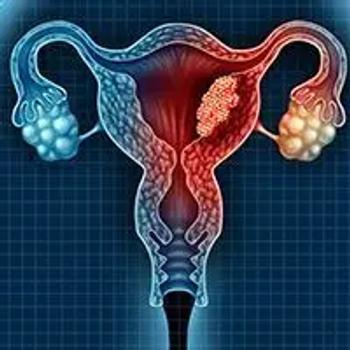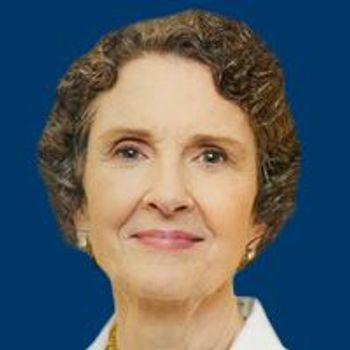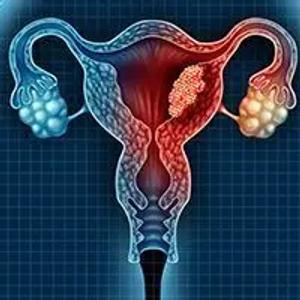
Paul G. Richardson, MD, started his journey in medicine delivering tea and biscuits to patients and ended up making seminal advances in myeloma care.

Your AI-Trained Oncology Knowledge Connection!


Assistant Editor, OncLive®
Jessica joined the company in August 2019 and is one of the point contacts for the OncLive On Air™ podcast. She is a Rider University alumna and holds a degree in journalism and biology. Prior to joining MJH Life Sciences, she interned with the Ireland-based social media monitoring agency Olytico and served as a copy editor and writer for The Rider News. Email: jhergert@onclive.com

Paul G. Richardson, MD, started his journey in medicine delivering tea and biscuits to patients and ended up making seminal advances in myeloma care.

Jennifer M. Matro, MD provides an in-depth look at clinical trials that have added to the breast cancer paradigm and how she is interpreting the findings for clinical practice.

Saad Z. Usmani, MD, MBA, FACP, shares key takeaways from presentations given during the meeting on the evolving paradigms of frontline, early relapsed, and late relapsed multiple myeloma, the current role of bispecific antibodies and CAR T-cell therapy, and emerging immunotherapies and also trials in progress in the space.

Laura Finn, MD, provides a deep dive into pivotal data with combinations and novel agents that have changed the paradigm for patients with newly diagnosed, early relapsed, and late relapsed multiple myeloma.

John T. Cole, MD, discusses how updates in HER2-positive breast cancer have affected sequencing strategies, selecting between CDK4/6 inhibitors in the adjuvant and metastatic settings of hormone receptor HR–positive breast cancer, and the need for additional therapies in triple-negative breast cancer.

Douglas W. Sborov, MD, MS, discusses key data and therapeutic developments that have reshaped the treatment of patients with newly diagnosed and relapsed/refractory multiple myeloma.

Meredith McKean, MD, MPH, discusses how the presence of atypical BRAF mutations affects treatment selection in patients with metastatic melanoma, highlighted the ongoing KN-8701 trial, and explained why developments in this space further solidify the importance of broad molecular profiling.

Although brachytherapy is rarely utilized as a treatment for pediatric and adolescent/young adult patients in the United States, AYA patients with rhabdomyosarcoma treated with BT had favorable survival outcomes.

Concurrent chemoradiation followed by durvalumab has become the standard of care for patients with unresectable stage III non–small cell lung cancer based on the results of the phase 3 PACIFIC trial. However, several strategies are under clinical evaluation to push the paradigm beyond the PACIFIC regimen.

Debra L. Richardson, MD, FACS, FACOG, discusses the role of NaPi2b as a target for upifitamab rilsodotin, data that have emerged from the ongoing phase 1/2 UPLIFT trial, and the development of other studies like UPNEXT and UPGRADE that are further evaluating upifitamab rilsodotin in patients with ovarian cancer.

The field of non–small cell lung cancer has exploded with continuous advances in targeted therapies directed toward key molecular alterations, including rare mutations like MET exon 14 skipping mutations, RET rearrangements, and ROS1 mutations.

Developing BRAF inhibitors for patients with atypical class II and III mutations has become an exciting area of research.

Laura Spring, MD, discusses the influence of the findings from the DESTINY-Breast03 trial with trastuzumab deruxtecan on practice patterns in HER2-positive breast cancer, updates in the management of brain metastases, and ongoing clinical trials she is keeping an eye on to move therapies into earlier lines of treatment.

Ruta D. Rao, MD, discusses factors that inform treatment selection for patients with metastatic HER2-positive breast cancer, the effects key data that emerged in 2021 have had on sequencing, strategies to mitigate toxicities associated with trastuzumab deruxtecan, and remaining questions regarding sequencing that may be the focus of ongoing research effort.

Sarah Lee, MD, MBA, discusses the use of checkpoint inhibitors in endometrial cancer, research regarding the association between MSI-H, dMMR, and TMB-H disease, and the importance of broad molecular testing to ensure all eligible patients are appropriately matched to immunotherapeutic options.

Aditya Bardia, MD, MPH, discusses key updates in HER2-positive, hormone receptor–positive, and triple-negative breast cancers, as well as the evolving clinical application of gene signature assays, liquid biopsies, and genotyping.

Aditya Bardia, MD, MPH, discusses the clinical implications of the DESTINY-Breast03 trial, the encouraging data from the DAISY trial, and sequencing questions that remain in the evolving paradigm of HER2-positive breast cancer.

The National Comprehensive Cancer Network guidelines were updated for 2022 regarding the treatment of patients with breast cancer to include 2 new recommendations involving neratinib.

Over a 42-month period, the combination of nivolumab and ipilimumab induced a longer treatment-free survival compared with sunitinib (Sutent) when used as frontline therapy in patients with advanced renal cell carcinoma.

Treatment with the PD-L1 inhibitor durvalumab in combination with gemcitabine and cisplatin resulted in significantly improved overall survival vs placebo plus chemotherapy in patients with advanced biliary tract cancer.

Adam M. Brufsky, MD, PhD, FACP, discusses the significance of the data from DESTINY-Breast03 with trastuzumab deruxtecan vs T-DM1 for patients with metastatic HER2-positive breast cancer, as well as how the findings set the field up to improve outcomes for patients with brain metastases.

Tomer Mark, MD, discusses the emerging role of minimal residual disease as a surrogate end point in multiple myeloma, treatment selection for patients with newly diagnosed, early relapsed, and late relapsed disease, and the importance of daratumumab being introduced to the treatment paradigm of amyloidosis.

Thomas Kipps, MD, PhD, discussed navigating treatment regimens in CLL and MCL, the success of brentuximab vedotin in Hodgkin lymphoma, choosing between TKIs in CML, and the importance of transfusion independence in MDS.

Liquid biopsies are critical in understanding oncogenic drivers and resistance mechanisms in patients with non–small cell lung cancer.

As the armamentarium of advanced non–small cell lung cancer () continues to grow with the addition of novel targeted therapies for rare patient subtypes, the field is simultaneously shifting to evaluate targeted therapy and immunotherapy in earlier lines of treatment, including the neoadjuvant and adjuvant spaces.

Melissa Geller, MD, MS, and colleagues discuss key clinical trials that have changed the landscapes of HER2-positive breast cancer and triple-negative breast cancer, the role of first- and second-line maintenance therapy in ovarian cancer, and key updates in cervical and endometrial cancers.

Molecular testing is an established and essential precursor to treatment for patients with non–small cell lung cancer based on the volume of actionable targets, such as EGFR and KRAS G12C mutations, as well as PD-L1 status.

Sara M. Tolaney, MD, MPH, discusses the mechanism of action that makes bispecific antibodies an intriguing approach in managing HER2-positive breast cancer, efficacy data with zanidatamab that were presented during the 2021 SABCS, and her thoughts on sequencing strategies with bispecific antibodies among other agents in the paradigm.

Richard Penson, MD, MBBS, discusses how he makes treatment decisions for maintenance therapy in patients with platinum-sensitive recurrent ovarian cancer.

Adam M. Brufsky, MD, PhD, FACP, discusses the rationale to evaluate enobosarm in estrogen receptor–positive, androgen receptor–positive metastatic breast cancer, prior data observed with the agent, and the unmet needs positive results of the ARTEST trial could potentially fulfill.

Published: June 23rd 2020 | Updated:

Published: January 13th 2022 | Updated:

Published: December 14th 2021 | Updated:

Published: January 31st 2022 | Updated:

Published: October 18th 2020 | Updated:

Published: August 7th 2020 | Updated: